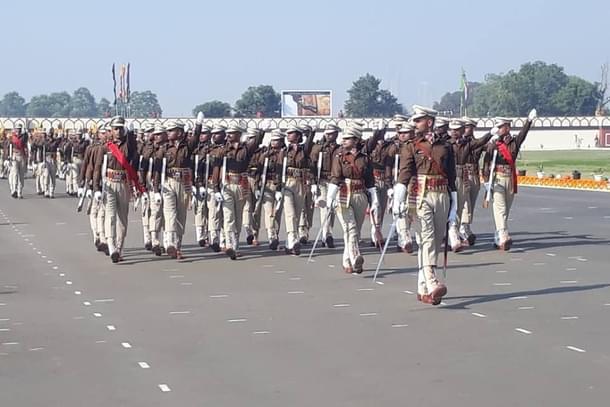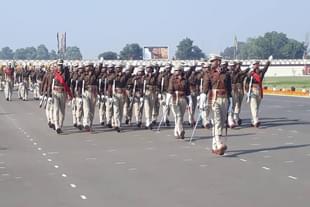Insta
More Than 12 Hours A Day And No Holidays: CRPF Personnel Compelled To Live In Sub-Human Conditions, Says JPC
Swarajya Staff
Dec 17, 2018, 11:05 AM | Updated 11:05 AM IST
Save & read from anywhere!
Bookmark stories for easy access on any device or the Swarajya app.


A joint parliamentary committee has communicated dissatisfaction over long working hours of Central Reserve Police Force (CRPF) personnel, who can't profit holidays and weekly offs, saying that such a situation is neither stable nor economical, reports The New Indian Express.
The parliamentary standing committee on home affairs, headed by Congress leader, P Chidambaram, added that the accommodation given by the state governments to paramilitary forces in some cases are unhygienic, unreliable and ineffectively maintained, which influences respect, spirit and motivation of troops.
“The committee is dismayed to note that the CRPF personnel work for 12-14 hours a day and more than 80 per cent of CRPF personnel cannot avail holidays and Sundays,” said a report submitted to Rajya Sabha.
The committee recommended to recognise that the working hours regulation under Indian Labour Law stipulates an extreme of 48 work-hours each week. While the armed forces are exempted from this directive, it indicates that their working hours are“neither healthy nor sustainable in the long term”, it said.
“The committee is concerned to observe this over-deployment of the CRPF which is curtailing their training, rest and recuperation. The committee is of the considered view that one-sixth of a battalion, should be, at any given time, mandatory under training or rest or in peace stations,” said the report.
The committee prescribes that the state governments may work out their frameworks and make game plans for proper preparing of their separate state police forces with the end goal that their over-dependence on the CRPF for each peace situation might be lessened.
“Often state governments fail to provide basic infrastructure. Funds may be given directly to the CRPF to build its infrastructure. “Due to the absence of adequate and suitable accommodation the jawans are compelled to live in sub-human conditions which affect their dignity, morale and motivation besides affecting the command and control,” it said





